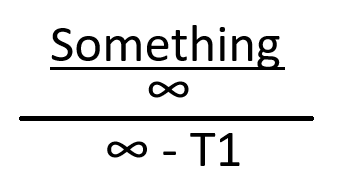Between the Lagrange’s theorem and the Laplace transform, nabla and delta symbols, we were also finding transfer functions like this one.
The applied Steinhart-Hart Thermistor transfer function can be transcribed as:
T2= T1*B/ln(R1/R2) / ( B/ln(R1/R2) - T1 )
for known resistor values. The B (beta) parameter is also a known since I will be using thermistors that have proper documentation and online datasheets.
The thermistor I am using is a 10K 1% (3380 Beta one) that has the datasheet here:
https://www.tdk-electronics.tdk.com/inf/50/db/ntc/NTC_SMD_Standard_series_0603.pdf
For everybody who is interested in playing with this mathematical model, if this is new information to you, please have fun with this online calculator. I am not affiliated in any way with the creator of this calculator, but I though I drop this link here for who wants to learn more:
https://daycounter.com/Calculators/Steinhart-Hart-Thermistor-Calculator.phtml
You can also check the wikipedia official article:
https://en.wikipedia.org/wiki/Thermistor
My software implementation looks something like this:

Notice that I have a special if to prevent the ln(1) which is 0. This has to be prevented in this equation or else it will turn into:

and you will get an error there. This happens at 25 Celsius degrees and if this error is not prevented, I think it just shows 0.0000 on the screen.
 Marius Taciuc
Marius Taciuc
Discussions
Become a Hackaday.io Member
Create an account to leave a comment. Already have an account? Log In.
To be honest, the Laplace transform is a little bit complicated for my understanding, but your project seems to be very interesting. I want to do some research along with https://plainmath.net/post-secondary/calculus-and-analysis/differential-equations/laplace-transform on that theme, as I like to solve complicated issues. In any case, it would be a good experience for me, and the possibility to increase my knowledge.
Are you sure? yes | no